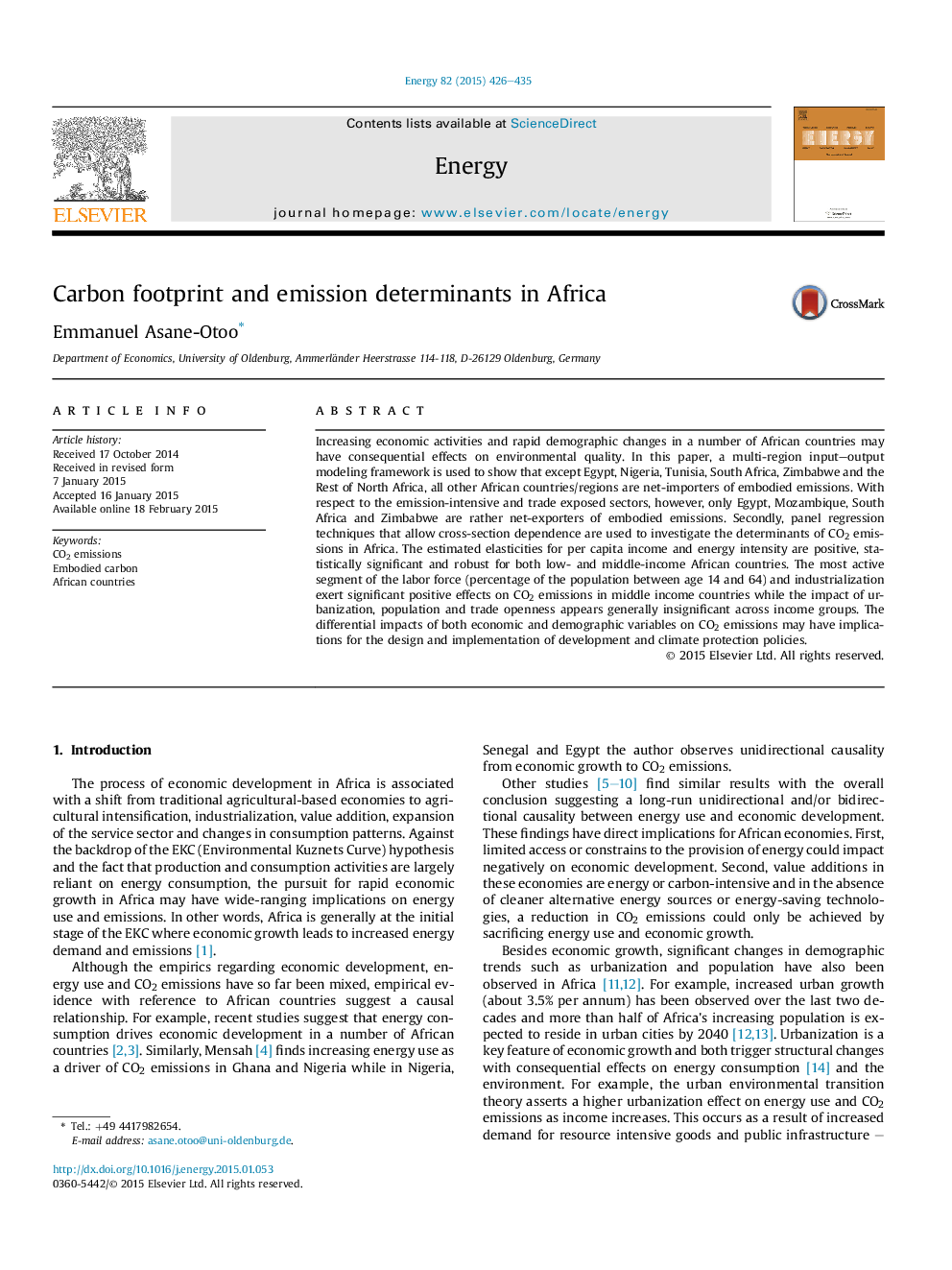| Article ID | Journal | Published Year | Pages | File Type |
|---|---|---|---|---|
| 8075269 | Energy | 2015 | 10 Pages |
Abstract
Increasing economic activities and rapid demographic changes in a number of African countries may have consequential effects on environmental quality. In this paper, a multi-region input-output modeling framework is used to show that except Egypt, Nigeria, Tunisia, South Africa, Zimbabwe and the Rest of North Africa, all other African countries/regions are net-importers of embodied emissions. With respect to the emission-intensive and trade exposed sectors, however, only Egypt, Mozambique, South Africa and Zimbabwe are rather net-exporters of embodied emissions. Secondly, panel regression techniques that allow cross-section dependence are used to investigate the determinants of CO2 emissions in Africa. The estimated elasticities for per capita income and energy intensity are positive, statistically significant and robust for both low- and middle-income African countries. The most active segment of the labor force (percentage of the population between age 14 and 64) and industrialization exert significant positive effects on CO2 emissions in middle income countries while the impact of urbanization, population and trade openness appears generally insignificant across income groups. The differential impacts of both economic and demographic variables on CO2 emissions may have implications for the design and implementation of development and climate protection policies.
Related Topics
Physical Sciences and Engineering
Energy
Energy (General)
Authors
Emmanuel Asane-Otoo,
